Energy Efficiency | December 17, 2020
Experiences in Mechanical Engineering
Mechanical engineering is unique because of its breadth: a number of different fields and focuses sit under one area of study. As a mechanical engineering student at Northeastern University, I get to partake in six month co-op experiences, and beginning in the summer 2020, I had the great opportunity of working at Fairbanks Energy Services. I had always been interested in energy and more specifically the transition to green energy solutions that the world is going through. At Mantis, I learned how to create solutions that focus on energy efficiency and save money for customers, explore the lighting and mechanical industries and examine the true broadness of my major through real work experiences.
Building on my engineering skills
There is a base of skills important to engineering, and while at my co-op at Mantis, I was able to practice and improve on many of these skills. Being able to manage your time well is essential as an engineer. This was very important during my co-op as each day on the job was different. I was called to help on multiple projects at the same time. This was helpful because each project would be at a different stage which allowed me to work on every part that goes into our projects at once. Whether it was performing a lighting audit, deciding which retrofits would work best, ordering material and finally the installation process of our lighting solutions, I learned to work on multiple projects and stages simultaneously.
When I began my co-op, I knew very little about the lighting industry and had to take the time to learn a lot about it to work on various lighting projects. Now, I know the multiple types of lighting available and where you would typically find each one. But, more importantly, I learned about the energy efficient solutions that are possible using LED lighting. LEDs allow for a lot of flexibility depending on the client wants and needs, along with the ability to be customized to create the best solution for each facility.
Finally, there were some great software skills that I got to improve upon while at my co-op, including using Excel, AutoCAD and specifically leveraging Excel to enter audits and determine retrofits materials. Using a scheduler that mapped out LED lighting install times, I helped change the schedule based on when we planned starting to accurately plan out the build time. This schedule was given to the customer to show them what parts of building would be worked on each day and how long each section would take. Using AutoCAD, a software for creating drawings for mechanical projects, I helped plan new pipe installation for a client’s building to help centralize their chilled water system, drawing to specifications which would make their system more efficient.
Whether I was working on a lighting project site, in the office planning a new pipe installation for an HVAC solution, or even working at home, I learned and built on key engineering skills during my six months at Mantis, from engineering specific capabilities to the importance of strong, customer-centered project management.
Working on project sites
One of the best aspects of my co-op was that I was able to learn significantly in the field. I got to see the projects which I worked on come to life while on site. I helped perform audits, which allowed me to understand the lighting which I was entering into our audit template, and I got to see the new lighting which was being installed. This was great because it helped me see the difference in the lighting quality of the buildings. I also got to help with commissioning, which mostly entailed programming the light fixtures to talk with one another and turn on in groups rather than individually.
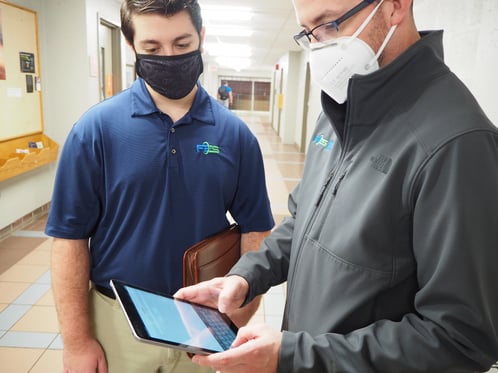
Project Manager, Chris Davin, teaching me how to program LED lights that we had installed for a university
Being on site was always great because I worked directly with the project managers, allowing me to ask them questions and learn more about different projects. This was very useful for me, especially on mechanical project sites. I worked a lot with our Senior Mechanical Engineer, Jim Taxiera, who manages a lot of the mechanical projects that we have here. He would show me the new equipment that was being installed and explain to me why our new equipment was more efficient than what was previously being used. While on site, he would always show me around the other mechanical systems that were not part of the project and explain how they worked and their role in building. These were some of my most valuable experiences. Even though I learned about these systems in class and through textbooks, being able to see them in person and work with people whose job revolves around them taught me much more than I could learn in any classroom setting.
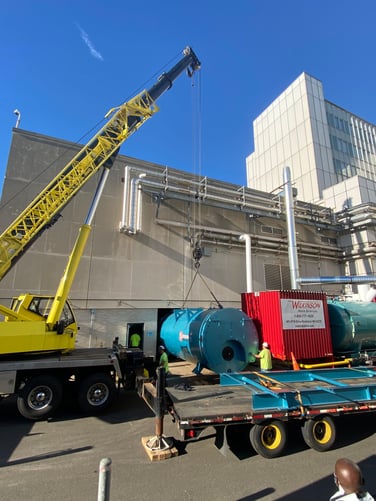
A crane putting in a new boiler that we are installing at this hospital
Experience in a family-run business workplace
A co-op experience functions as both real work experience in a field and as a learning opportunity, where members of the company work with you to teach you skills and field knowledge important for wherever you end up. Starting my first co-op, I was excited, but I was also very nervous: it was my first time in a full-time job as an engineer, and I was unsure what to expect. However, I quickly realized that there was no reason to be nervous. Everyone at Mantis was extremely kind and welcoming. My supervisor, Tom Cashman, was very approachable and was always a great resource for me to ask questions and learn from. I quickly felt like a part of the company rather than an intern who would only be with the company for six months.
My experience was altered because of the Covid-19 pandemic, meaning I would partially work at home, but I would always look forward to the days that I got to come in the office so that I could be able to work in person with my other coworkers. Even when working from home, the marketing team set up happy hours and trivia on Friday afternoons where I was able to talk to and have fun with the coworkers that I didn’t get to see often in person. While my time at Mantis is coming to an end soon, it is an experience that not only taught me a lot in terms of job skillsets, but it also gave me a great first experience in the world of engineering.
Related Posts
Discover more content and insights from Mantis Innovation

The Cost of Inaction: Why Businesses Should Act Now on Energy Efficiency
In today's fast-paced business environment, the financial and operational losses businesses incur by delaying energy efficiency improvements, the "cost of inaction," is more relevant than ever.
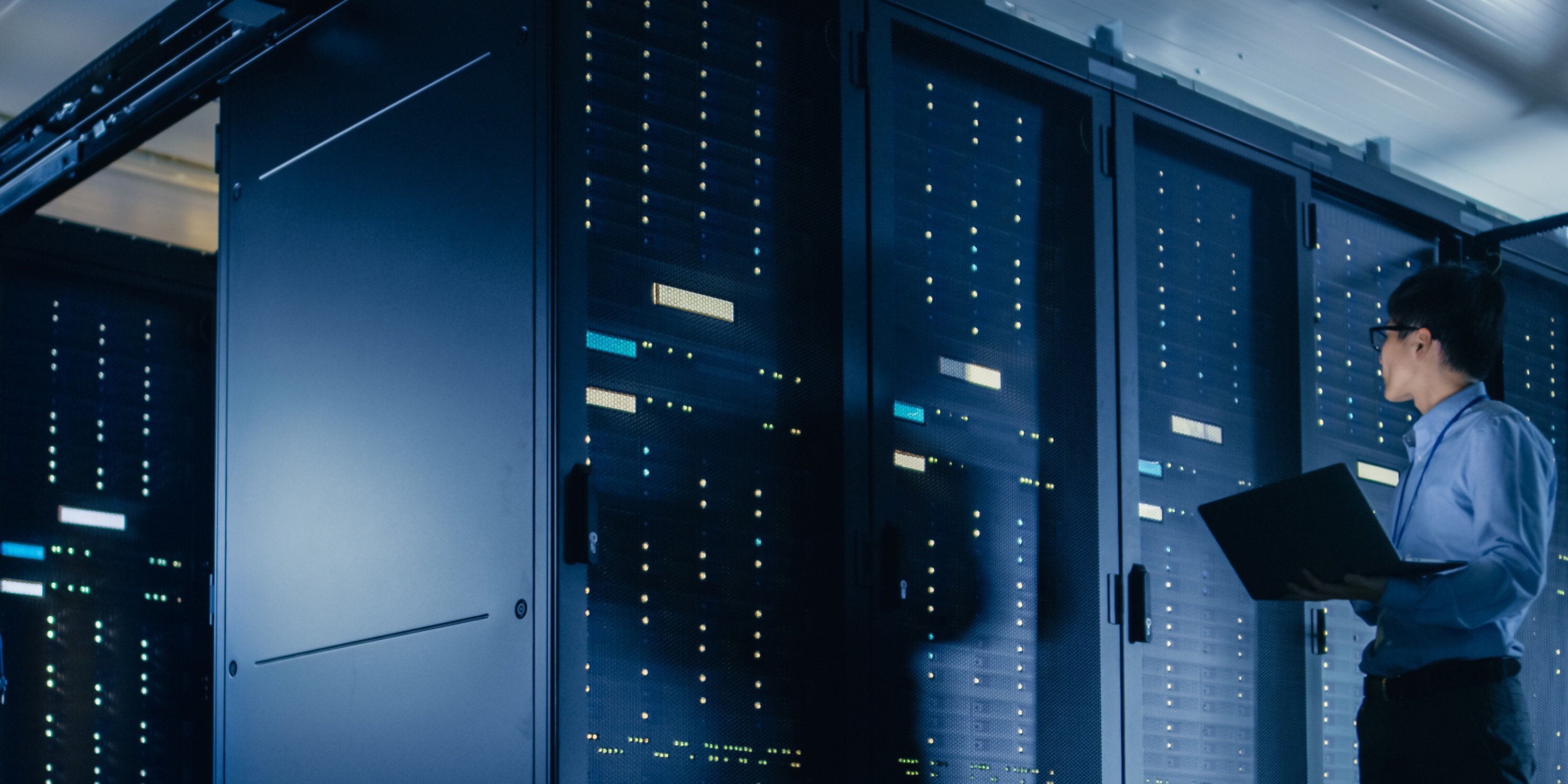
In today’s AI era, human intelligence is the key to data center facility and energy optimization
Nowhere else in modern industry do artificial and human intelligence converge with such transformative potential as in the world of data centers. As AI's extraordinary growth accelerates demand for
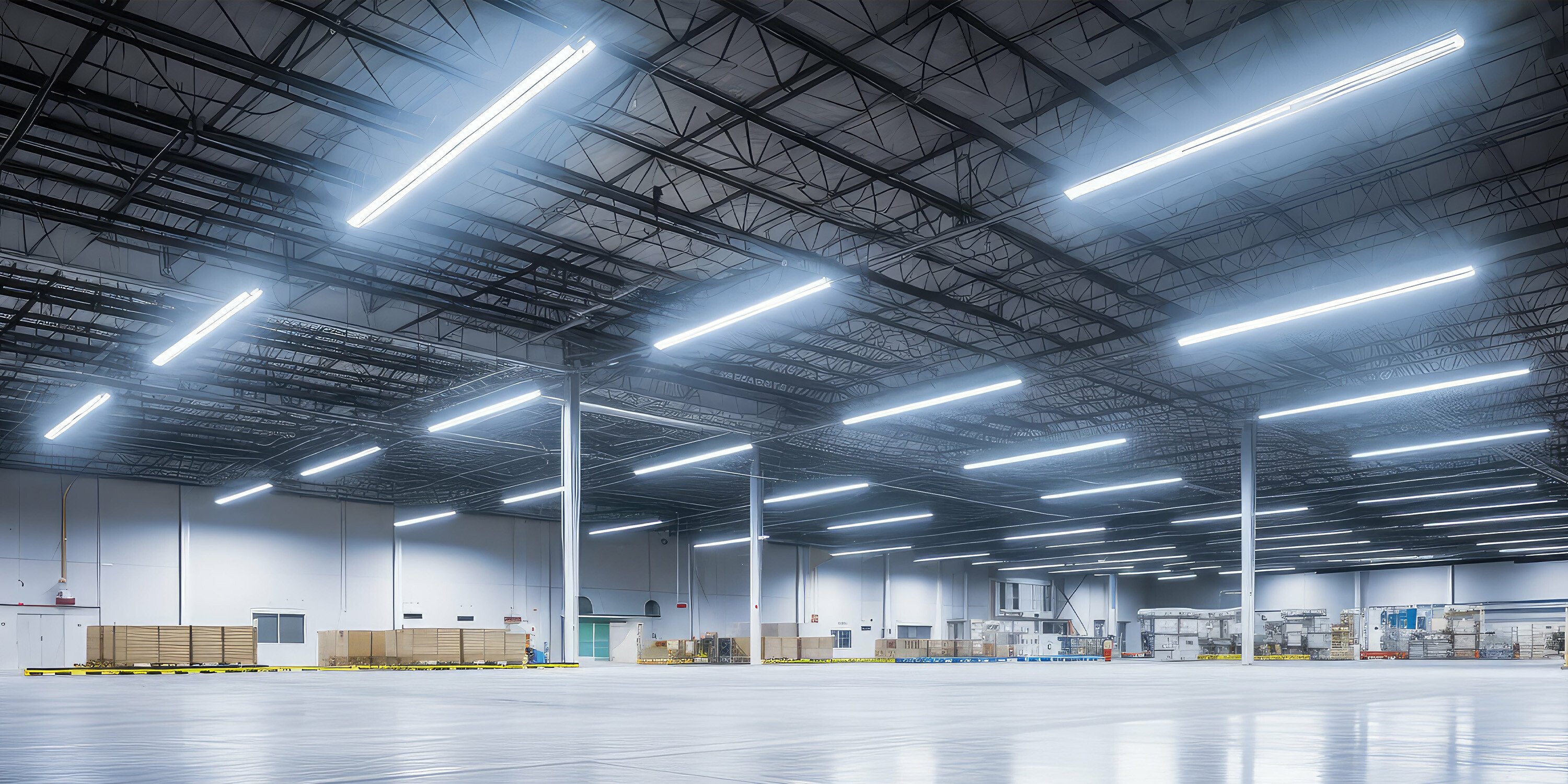
Your Guide to LED Lighting for Business and Commercial Buildings
Never to be underestimated, LED lighting and well-designed lighting retrofits and upgrades offer businesses big improvements like reduced energy costs, reduced emissions, and improved working
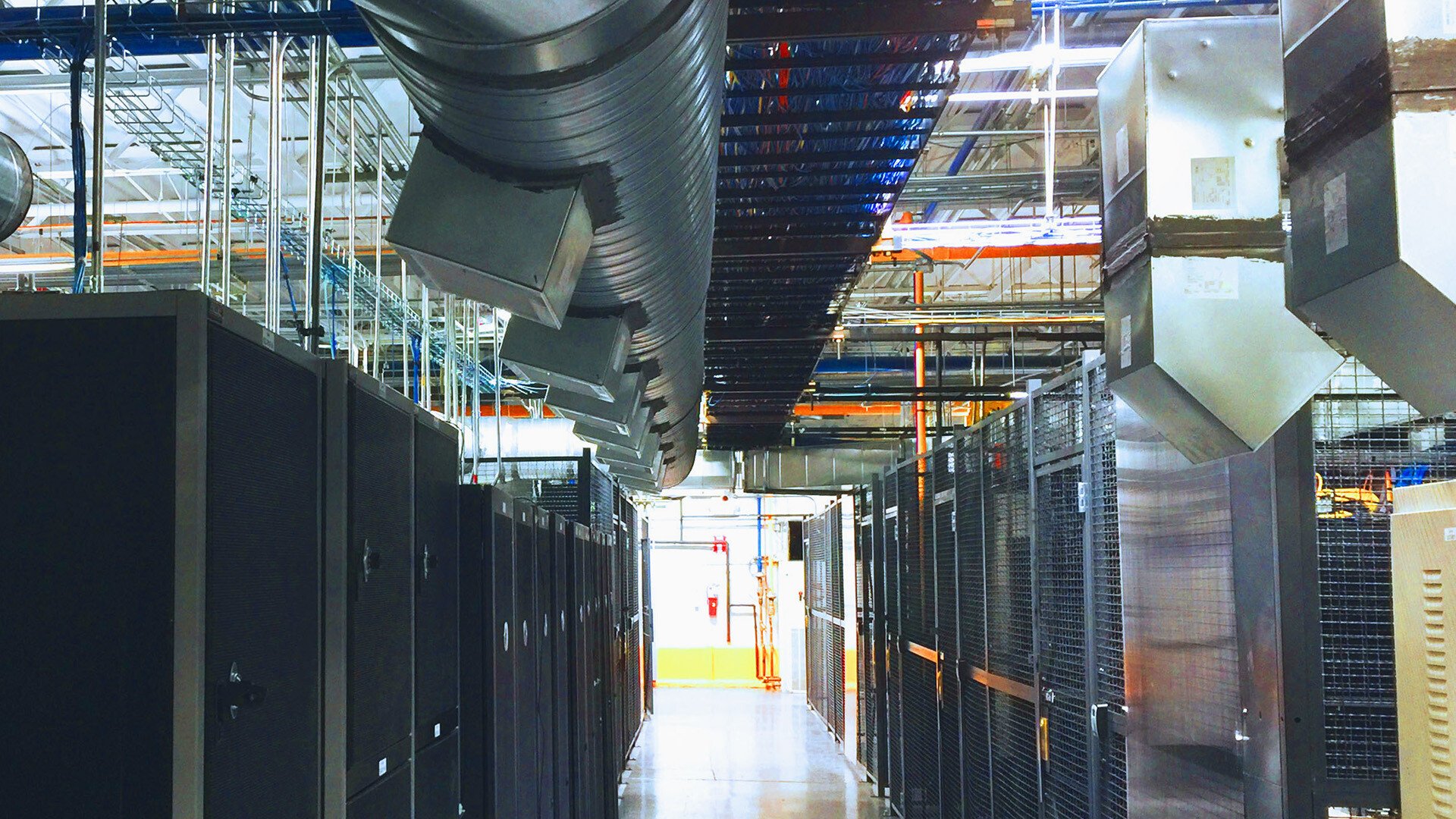
Five Trends Driving Data Center Facility Energy Optimization
Today’s digital economy, commercial and industrial digitalization, and the recent explosion in artificial intelligence and machine learning (AI/ML) powered computing are driving massive growth in